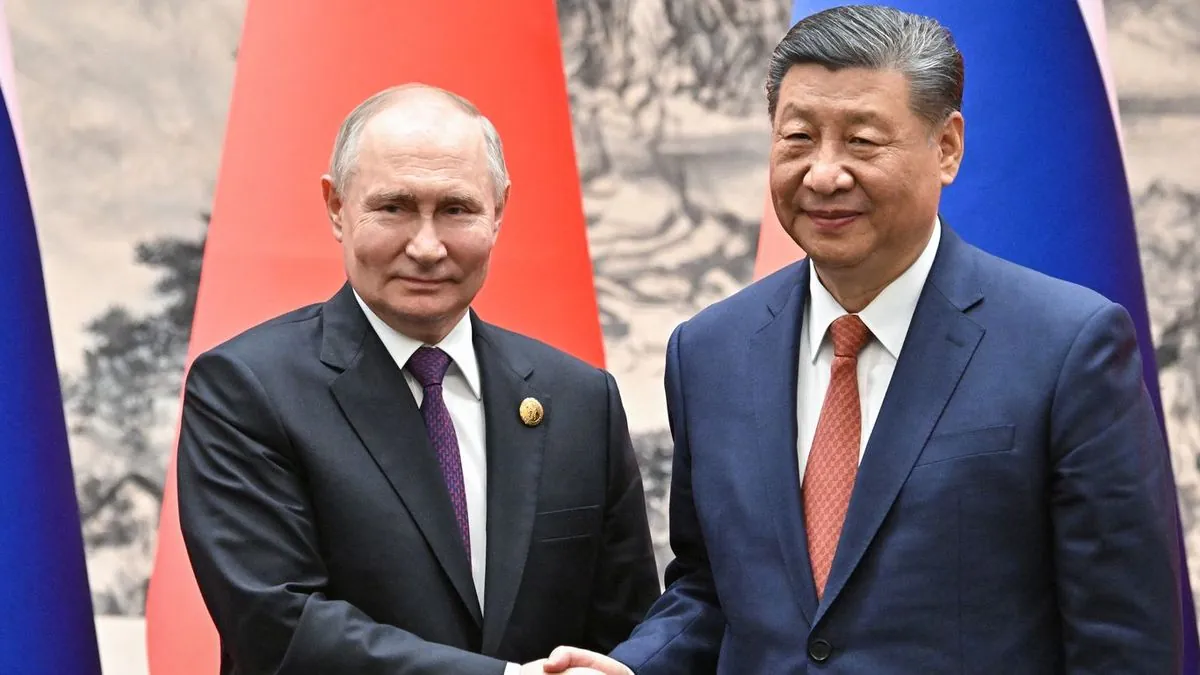The alliance between China and Russia has grown significantly stronger in recent years, surpassing the historical Sino-Soviet relationship of the Cold War era. This development has become a major concern for Western strategists, particularly in light of China's support for Russia's actions in Ukraine.
Comparing the current Sino-Russian ties to the past Sino-Soviet alignment reveals a more robust partnership across five key factors: geopolitics, economics, ideology, leadership, and institutions.
Geopolitically, the Beijing-Moscow axis stands on firmer ground today. While both nations share an adversarial relationship with the United States, they pose less of a threat to each other compared to the Cold War period. China's limited geographic reach reduces its potential threat to Russia, while Moscow recognizes that Beijing is primarily focused on its naval rivalry with the US.
Economically, the two nations have developed a complementary relationship. Russia has become China's largest source of crude oil and second-largest source of natural gas, while China provides Russia with crucial technology imports. This economic interdependence has been strengthened by agreements in sectors such as satellite navigation, space exploration, and atomic energy.
Ideologically, the current partnership is less susceptible to rifts than its Cold War predecessor. While both regimes share concerns about Western influence on their political stability, ideology plays a less intense role in today's global politics.
Leadership dynamics have also improved significantly. Vladimir Putin and Xi Jinping have met over 40 times since 2012, fostering a stronger personal relationship than their Cold War counterparts. This improved dialogue at the highest levels has contributed to the stability of the alliance.
Institutionally, the ties between China and Russia are both wider and deeper today. Regular meetings between presidents and prime ministers, strategic security consultations, and numerous intergovernmental commissions and working groups have been established. Military cooperation has reached unprecedented levels, with over 100 joint exercises conducted since 2003.
"Russia's relationship with China is at its best."
Given the strength of the current Sino-Russian alignment, attempts to weaken it are likely to fail. The relationship is driven primarily by China's superpower rivalry with the United States, making it difficult to sway Beijing away from Moscow. Similarly, Russia's strong alignment with China and the benefits it derives from this partnership make it unlikely to abandon the relationship, even if offered incentives by the West.
The stability of the current Beijing-Moscow axis stands in stark contrast to the Sino-Soviet alliance of the past. With a solid geopolitical foundation, strong economic ties, reduced ideological friction, improved leadership relations, and well-established institutional links, the partnership between China and Russia appears more resilient than ever before.
As the world marks 75 years since the Soviet Union first recognized the People's Republic of China, it is clear that the dynamics of global power have shifted significantly. The current Sino-Russian alliance, forged in the post-Cold War era, presents a formidable challenge to Western strategic interests and is likely to remain a defining feature of the international landscape for years to come.
